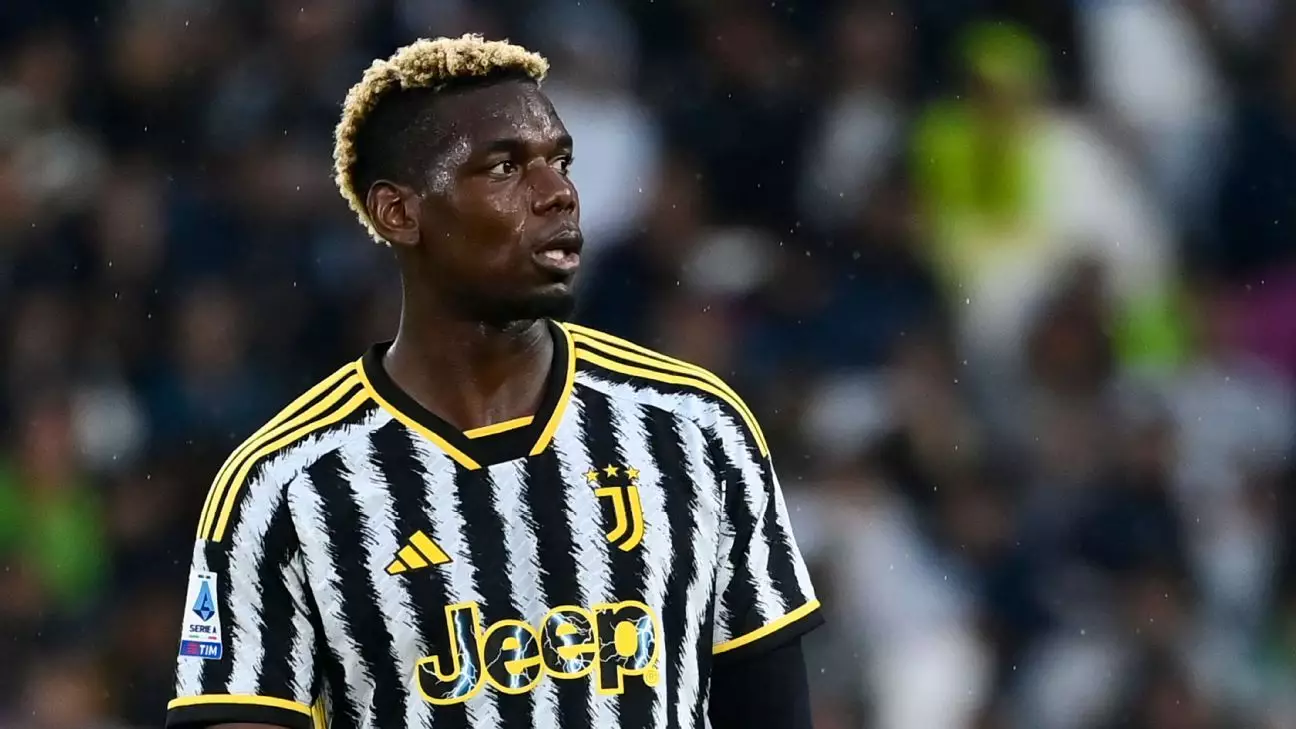In the realm of professional sports, few figures have sparked as much debate as Paul Pogba, the French midfielder known for his extraordinary talent and charismatic demeanor. Recent developments regarding his doping suspension have sent ripples through the football community. The Court of Arbitration for Sport (CAS) announced that Pogba’s initial four-year ban has been cut down to 18 months, a ruling that offers a glimmer of hope for the player and his loyal fans. Starting from September 11, 2023, this shortened suspension raises questions not just about Pogba’s future, but also about the intricacies of drug testing and the justice meted out within the sporting world.
The CAS decision to reduce the ban underscores the complexity involved in anti-doping rulings. Standard protocol under the World Anti-Doping Code prescribes a four-year ban for doping violations. However, in situations where an athlete can prove unintentional use of a banned substance or provide valuable information to investigations, such penalties can be alleviated. Pogba argued that his positive test stemmed from a dietary supplement prescribed by his doctor, asserting that he never intended to cheat. Yet, the implication of a doping charge hangs heavily over his reputation.
Pogba’s case thus becomes a reflection of the broader issues athletes face when navigating health, performance, and the pressures of professional sports. While he maintains his innocence, one must consider the skepticism that often surrounds doping cases. The judgment seems to validate Pogba’s insistence on his integrity, but it also raises concerns about the systems in place for athlete oversight.
In his own words, Pogba described the emotional toll of the situation: “This has been a hugely distressing period in my life because everything I have worked so hard for has been put on hold.” Such sentiments resonate with not just Pogba, but countless athletes who have faced similar predicaments. The psychological strain that comes with a suspension is often overlooked, and Pogba’s experience shines a light on this aspect.
Despite being on the sidelines since August 2023, Pogba’s commitment to maintaining fitness sets a precedent for professionalism. Reports indicate that he remained active during his suspension, a testament to his determination to return to the pitch. As he prepares to make a comeback in March 2025, it’s clear that his passion for football is unquenchable, even in the face of adversity.
Paul Pogba’s return to competitive football is not just a personal journey; it also marks a significant moment for Juventus and the fans who have followed his career. Since rejoining the club in 2022, Pogba has endured significant injuries that restricted his playing time, making this suspension another hurdle in what had already become a tumultuous period.
On the broader stage, Pogba’s legacy is at stake. Initially lauded for his stellar performances—including pivotal contributions to France’s 2018 World Cup victory—his recent controversies often overshadow his skill. As he contemplates a future return, Pogba faces the challenge of rebuilding not just his physical prowess but also the trust of fans and critics alike.
Lessons from the Ban: The Bigger Picture of Sports Ethics
Pogba’s situation opens a dialogue about ethics in sports and the role of doping regulations. Beyond his personal narrative lies the responsibility athletes have towards maintaining fair competition. The balance between rigorous drug-testing measures and fair treatment of athletes is fraught with difficulties, and Pogba’s experience serves as a case study for both advocates and critics of current regulations.
The question ultimately remains: how can the sports community better support athletes while enforcing necessary standards? As Pogba looks ahead with optimism, so too should the broader sports community reflect on how it can ensure a fairer, more just environment for all athletes, where integrity is the norm, not the exception.

